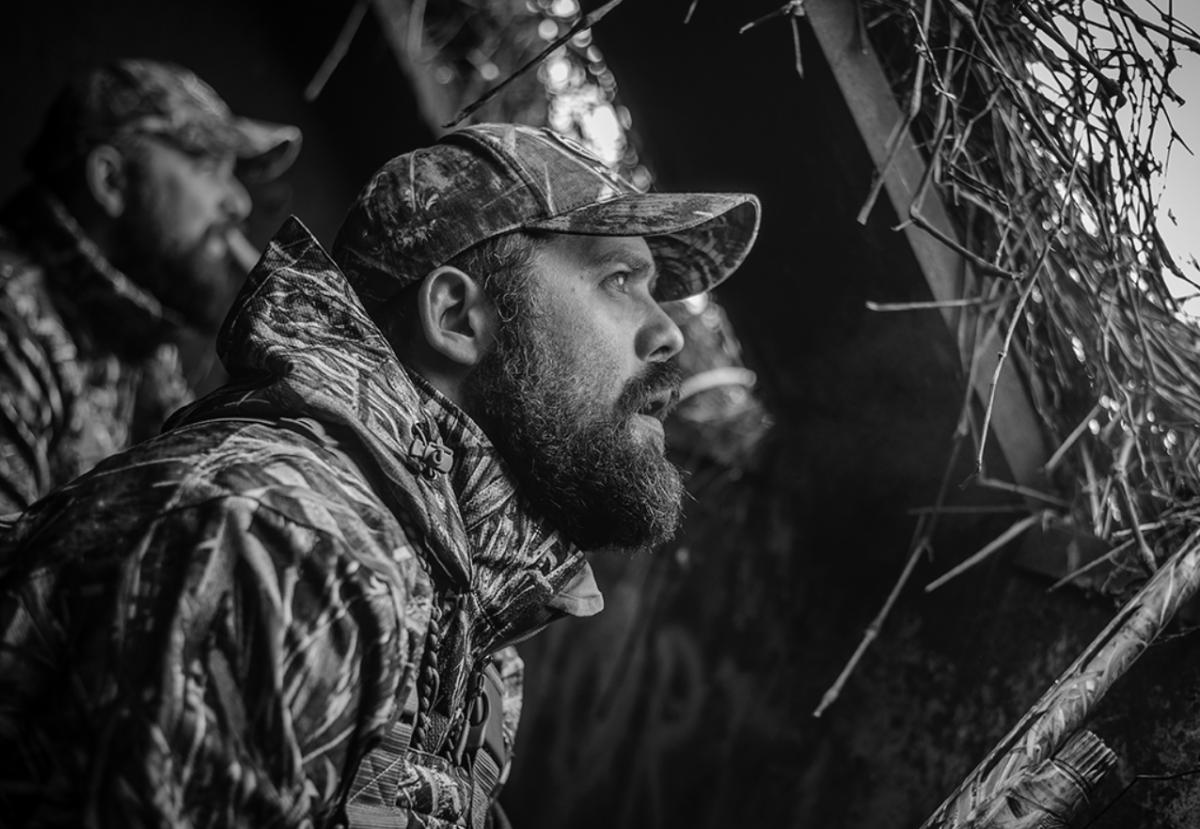A week doesn’t seem to pass without news of another legislature considering action to limit or deny abortions in its state. And the subject is front and center at the Supreme Court in its current session. If the Court should decide to overturn Roe V. Wade it has been estimated that some 26 states would enact anti-abortion statues.
Every time I hear about this issue, read about it or see it discussed on television my mind jumps back more than fifty years to a primitive, dank and musty duck blind on a creek in Talbot County. It is so long ago that I cannot remember exactly where it was. But a conversation in the blind on that fall day stands firm in my memory.
We had a beautiful view of the creek and a small, secluded, peaceful bay where ducks and geese often gathered. And right in the middle of the bay was a small island—perhaps two acres or so—about a half mile out from the blind. It was abandoned, overgrown with wild shrubs, reeds and grasses, and mature trees typical to an Eastern Shore landscape. And, sitting at dead center, was a tumbledown, two-story house with a couple of outbuildings nearby. None of the weathered clapboards on the property had felt the swipe of a paintbrush for decades.
It was my first visit to the blind—one of those waterside outlooks that required a good set of boots because, on each rising tide, the moldy plywood floor flooded. My host had invited a local resident to join us. He spoke up in a quiet moment when nothing was flying.
He pointed out the various characteristics of our site and its pluses and minuses insofar as hunting waterfowl was concerned. And then he pointed to the little island. He may have called it by name. If he did, I cannot remember what it was.
“See that place over there?”, he said. “That’s where the women went for abortions years ago. They would hire a fellow to row them out there, at night. They were afraid to use an outboard. Too much noise. When they got there someone they called “Doc” would take care of them.”
“Was he a real doctor?” I asked. “No, just someone who knew how to do that sort of thing,” he said.
Today, more than a half century after that encounter, the recollection of my hunting companion’s story and the memory of that long-abandoned island come rushing back to me as I learn of legislators considering laws that would make it impossible for legitimate, trained health practitioners to provide abortions for women whose personal circumstances are such that they feel compelled to choose such treatments.
For more reasons than anyone can imagine, and for more years than anyone can count, women have sought abortion assistance. The question before us today is this: Will we, as a nation, allow those women to terminate pregnancies openly, legally and safely, or will those who need such care have to return to the darkened shoreline, looking for the rowboat, that will take them to the island for a procedure performed by “Doc?”
We are likely to have some answers before the end of this new year.
Ross Jones is a former vice president and secretary emeritus of The Johns Hopkins University. He joined the University in 1961 as assistant to President Milton S. Eisenhower. A 1953 Johns Hopkins graduate, he later earned a Master’s Degree at Columbia University’s Graduate School of Journalism.



Deirdre LaMotte says
Women have sought to end pregnancies for thousands of years with herbs, violence to their bodies and invasive tools.
In the 21 century one would think that a medical decision should be made between a woman and her doctor. Those who oppose
abortion are free to do so. Nevertheless, one’s privately held religious belief should never be the basis of public
policy or law which forces others to act in accord with one’s belief. Roe is a compromise as there are fair time constraints in the law.
Are these people fine with genital metalation or honor killing? Because both are rationalized as a religious belief for some.
It should be taken for granted that the person will will carry the risk of a pregnancy is entitled to give her consent.
I wonder how the men in these state legislatures would feel about vigilante vasectomies?
Bill Minus says
Thanks. I fear this court for many reasons, Roe being at the top of the list.
Paula Reeder says
Here’s hoping that the Supreme Court will do the right thing and preserve the legal right that women in the US have had for over 50 years to choose to terminate unwanted pregnancies and sustain their access to affordable quality medical care required to safely support that decision.
Shelby strudwick says
Ross – you have done it again. A superb article. Thank you so much. Happy new year to you and Lynn.
Joan Berwick says
Thanks for the article. I’d like to see all those who oppose a woman’s right to choose step up and provide a home for the babies of the mothers who feel they cannot carry their baby for whatever reason.